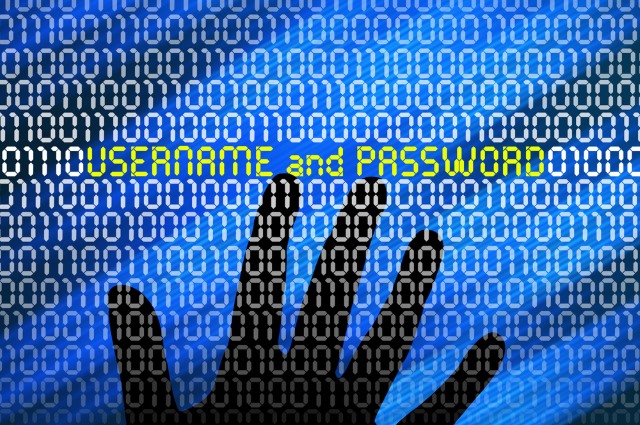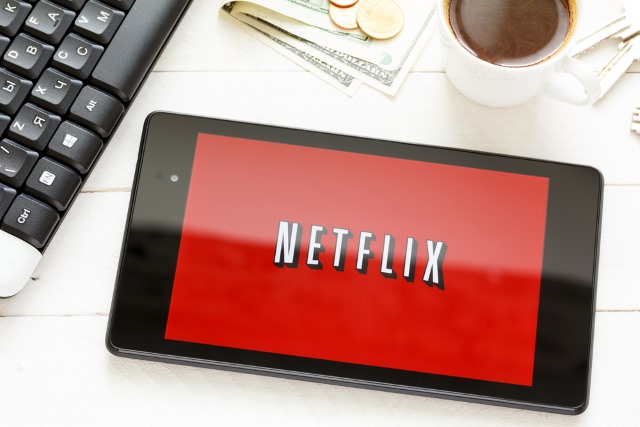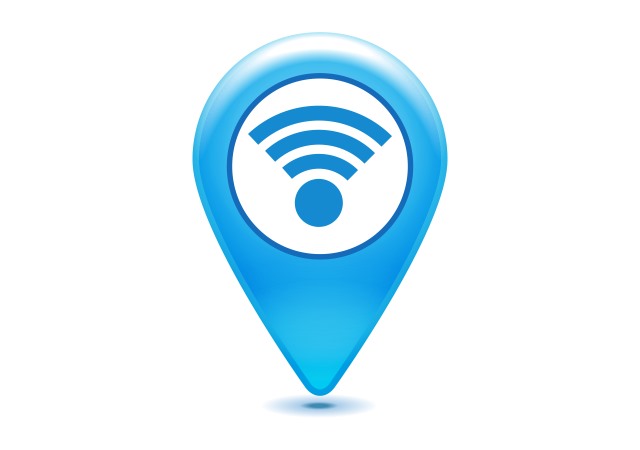
One in three Americans are victims of healthcare data breaches
In the last year there have been a number of data breaches involving the healthcare industry. These included high profile attacks such as those on Premera Blue Cross and Anthem compromising millions of records.
According to the 2016 Healthcare Breach Report from cloud access specialist Bitglass more than 111 million individuals' data was lost due to hacking or IT incidents in the US alone.

Continuous security helps protect consumer data
As individuals, the amount of personal data we have online has grown thanks to social networking and the number of organizations that encourage us to do business via the internet.
It's set to grow still more as the Internet of Things takes off, and this presents problems when it comes to sharing information. Conventional solutions rely on checkboxes or cookies, but these struggle to cope with current demands.

6 essential security tips for Data Privacy Day
Data Privacy Day may not sound like the most exciting event to add to your calendar, but it serves as a hugely important reminder of the value of security. January 28 is the big day, and there has never been a better time to ensure that you are following best practice -- and there's no reason not to get started ahead of time.
35 years ago, Data Protection Day was launched, and over the years this evolves into Data Privacy Day. The aim is to improve privacy and security awareness online, on mobile, and on computers in general. Whatever you use your phone, computer and other devices for, there's plenty you can do to increase your security and privacy.

Free tool launches to evaluate privileged password management
It's easy to set rules for handling privileged account passwords, but harder to ensure that they're being followed and that they meet best practice and security guidelines.
IT security specialist Thycotic is aiming to help organizations by launching a free online tool that demonstrates how companies compare to other, similarly-sized, organizations when meeting password management practices.

Uber is spying on driver smartphones -- privacy invasion or reasonable safety tool?
If you give an inch, people can take a mile. This old adage can be good advice when it comes to privacy. Some people may decry a privacy advocate's efforts with the cliche "if you have nothing to hide" argument, but that is poor logic. Look, even if you are following the law, your privacy should be looked at as sacred. Fight for it, y'all.
Today, Uber announces that it is tracking its drivers' smartphone data. At first glance, you might be up in arms. With that said, the company is claiming it is for the benefit of its customers. So, is it right, or wrong?

EFF files in the Federal Appeals Court against tracking phone activity
We've heard endless talk about our phones being tracked by the government and law enforcement, all done without a warrant. In other words, it's a massive gathering of data "just in case it's needed". That's a very broad swath, and likely most of it is never used for any reason, though there may be scans for certain keywords -- bomb, would be a good example.
The rules for this data gathering have been challenged in court and the Electronic Frontier Foundation (EFF) is at the forefront of this battle.

Privacy ombudsman could handle European complaints about US surveillance
The importance and awareness of online privacy issues have been brought into sharp focus in the 21st century. It's not entirely down to Edward Snowden, but the revelations from the former NSA contractor are a constant reference point for those concerned with privacy, security and freedom of speech.
One of the greatest problems facing anyone trying to tackle the problem of privacy on the web is dealing with the ideologies of different countries, and how this affects data sharing. A level of surveillance that is deemed acceptable in the US, for instance, may be considered completely objectionable in another. The latest suggestion to help overcome this seemingly insurmountable problem is to set up a privacy ombudsman that would be able to handle European complaints and queries about US surveillance.

Would you pay up if you received an Ashley Madison blackmail letter like THIS?
So many companies get hacked these days that it’s almost easy to be blasé about the news of another data breach. If your password gets compromised, you can change it. If your credit card details leak, you can cancel the card. But what happens when an extramarital affairs website you’re a member of gets hacked, and your personal details fall into the wrong hands?
When Ashley Madison was hacked last year, members had two straight choices -- come clean to their other half, or stay calm and hope it all blew over. Unfortunately, the fallout from the hack continues unabated, and some unfortunate Ashley Madison users have started to receive blackmail letters through the mail. And, for the recipients, the letters are truly terrifying.

Tim Berners-Lee is an idiot for wanting to expose cyberbullies' identities
While there is greater interest than ever before in online privacy there are also calls from some quarters for people who use the web to be fully accountable. This is part of the thinking behind Facebook's real names policy, and it's also what's driven Tim Berners-Lee -- no less than the inventor of the web -- to call for the identities of cyberbullies to be exposed.
In the wake of gamergate and countless other examples of women being abused online for little more than being women, bullying of school children by their contemporaries, and endless racist, sexist, and politically motivated attacks online, the suggestion might seem -- on the face of it -- to make sense. But it fails to stand up to scrutiny and is likely -- ultimately, if anyone were insane enough to follow his advice -- to be completely counterproductive.

Facebook's Android app gains privacy-enhancing Tor support
Back towards the end of 2014, Facebook unveiled a new .onion address that allowed Tor users to visit the social network securely. Following on from this, the company is now giving Android users the ability to browse the site using Tor and the Facebook app.
Security, privacy and anonymity may be words readily associated with Tor, but few people would use them in the same sentence as Facebook. The social network says that there is increased demand for secure connections to Facebook from Tor-enabled browsers, hence spreading to the largest mobile platform. The news will make some mobile users happy, but there are currently no plans to migrate the feature from Android to iOS.

BlackBerry denies existence of security backdoors and blames 'cracked' encryption on user error
BlackBerry has spoken out to deny claims that its encryption has been cracked by groups associated with the police in the Netherlands. The company has long-prided itself on the level of security it offers, but that security has been called into question recently.
Reports circulated that Mexican drug lord El Chapo was able to be found partly because of his decision to use a BlackBerry (specifically a BlackBerry Z30, fact fans) to arrange interviews with actor Sean Penn. Coming after claims by the Netherlands Forensic Institute (NFI) that it had been able to decrypt hundreds of encrypted emails on a BlackBerry handset, the Canadian company felt compelled to respond -- by blaming user error.

Interactive Advertising Bureau 'dis-invites' Adblock Plus from annual conference
Adblock Plus has been blocked from attending the IAB's (Interactive Advertising Bureau) upcoming leadership summit. The company has attended the meeting in the past, and had received an invite to this year's conference too -- but the IAB had a change of heart and retracted the invitation.
The meeting would have been an opportunity to meet with advertisers and to discuss Adblock Plus' Acceptable Ads guidelines later this week, but the IAB -- for reasons as yet undisclosed -- feels differently. In the interests of transparency (or airing dirty laundry in public, depending on your opinion), Adblock Plus has decided to go public with what's been happening.

Proxies and VPNs to be blocked by Netflix
Netflix is set to clamp down on VPNs and proxy tools used to access its services. A large proportion of Netflix content is region specific, and to get around licensing issues it has become increasingly common for people to spoof their location so they can watch their desired videos.
Netflix says it is doing what it can to ensure that people around the world have access to the same content, but until this is officially the case, the company is looking to enforce geographic restrictions more stringently. In the coming weeks, anyone who uses a proxy is likely to find it impossible to access content that is not licensed for viewing in their country.

Police could tap into router data to verify digital alibis
Law enforcement agencies are missing out on a vast amount of valuable data that could be used to convict criminals, or prove innocence. Dan Blackman from Edith Cowan University, Australia says that police are missing out on swathes of data that could be gathered from Wi-Fi devices.
For privacy advocates it's a suggestion that is likely to make the gag reflex kick in, but Blackman says that router data could be a valuable tool in fighting crime. Information such as device MAC addresses, coupled with data about connections to routers can be used to place individuals at the scene of a crime -- or away from it -- but timeliness is the key to success.

Brits acquiesce to internet surveillance but distrust data storage
UK web users are coming round to the idea of online surveillance by the government, but harbor concerns about how personal data will be stored. These are the findings of a survey by Broadband Genie that suggests terror attacks have led to a swing in public opinion of the Snooper's Charter.
But while people may be coming round to the idea of internet surveillance, they remain concerned about how private data -- such as browsing history -- will be stored. 27 percent of those surveyed said their opinion had been swayed by recent terrorist attacks by the likes of ISIS.